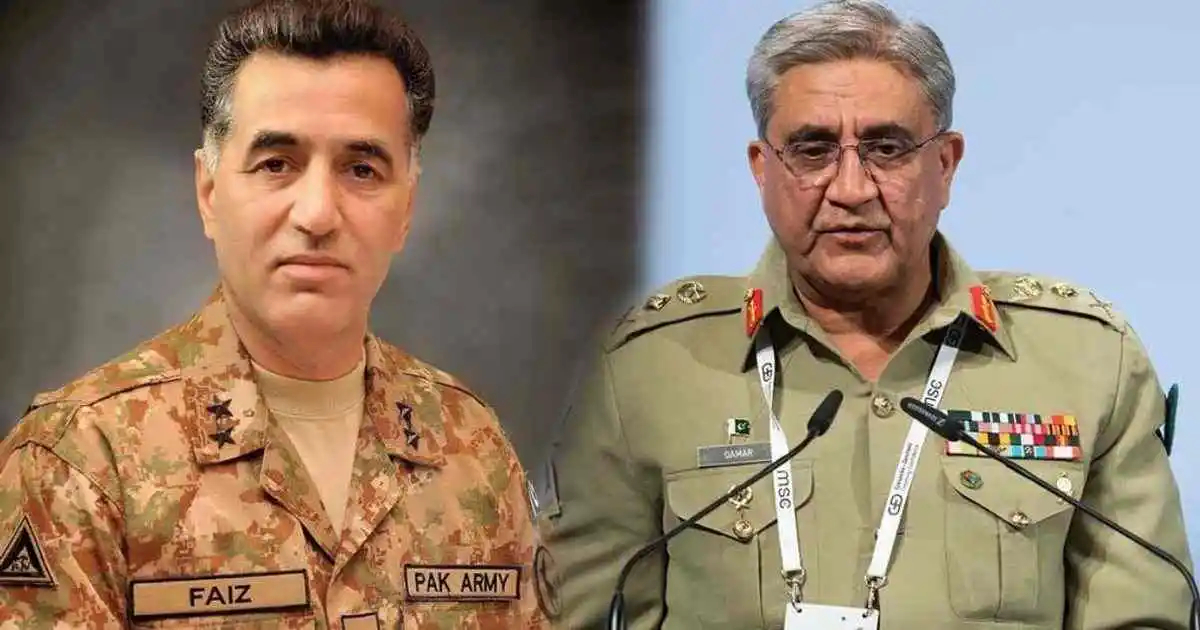NEW DELHI: The Pakistan Army is witnessing significant divisions within its ranks, with the present Chief of Army Staff Qamar Javed Bajwa on one side and Lieutenant General Faiz Hameed, who till recently served as the chief of Pakistan’s intelligence agency, the ISI, on the other. These internal differences are likely to come out in the open in the coming months as the tenure of the present COAS comes to an end on 28 November. Official sources within the GHQ, Rawalpindi, on the condition of not being named, told The Sunday Guardian that these internal divisions, that have been going on for almost a year now, also played a sig- nificant role in Bajwa refus- ing to come out in support of former Prime Minister Imran Khan, who had chosen to side with Hameed. Bajwa, the GHQ source said, has been assured complete support by the new Shahbaz Sharif government in ensuring that anyone but Hameed succeeds him.
Bajwa, who has publicly announced that he will not seek a third term as the chief of the world’s sixth largest Army, is likely to ensure the appointment of either Lt Generals Sahir Shamshad Mirza, Azhar Abbas or Nauman Mahmood Raja as his successor. Bajwa’s decision to publicly announce that he would not be seeking a third term stems from the assessment that he played a key role in ensuring the removal of Khan from the office of Prime Minister. According to non-government sources in Pakistan, there is “unprecedented” anger against Bajwa among a large section of society, especially among the supporters of Khan’s party, Pakistan Tehreek-e- Insaf (PTI).
According to these sources, one of the main reasons be- hind the internal discord between the duo of Khan Hameed and Bajwa was Khan insisting on entering into a dialogue with armed groups like Tehreek-e-Taliban Pakistan (TTP) and others, something that was resisted by Bajwa and his group.
It was due to this reluctance shown by Bajwa that Khan bypassed him and directed Faiz Hameed to reach out to the TTP through his friends in Afghanistan Taliban. The talks between Hameed and his team and TTP took place primarily in the month of September.
Khan, on 1 October, in an interview with Turkish national channel TRT World, had stated that his government was talking with TTP. This announcement by Khan on an international platform could come only after he was told by Hameed that the TTP had agreed to the ceasefire proposal that was to start from 9 November. However, less than one week later of this development, Hameed was removed as the ISI chief by Bajwa on 6 October in a decision that was termed as “shocking” by outsiders, but was described as “something that was imminent” by people who were closely following the developments.
“Hameed, due to the patronage that was being accorded to him by Khan became ‘too big for his boots’ and Khan started reaching out to him directly, bypassing Bajwa. The then ISI chief emerged as Pakistan’s point man to Kabul when the Taliban took over in August, as was evident from the way he conducted himself when he reached Kabul to congratulate the Taliban leadership on 4 September in full media glare. Not many are aware that among the promises that he got from the Taliban leadership was that they would do their best to bring TTP to the discussion table, which they did and which ultimately resulted in the announcement of the one month ceasefire which was made public on 8 November and was initially supposed to last from 9 November to 9 December,” an official source said.
However, once Hameed was removed and replaced by Lt. Gen. Nadeen Anjum (someone who avoids the media glare unlike Hameed), who was picked by Bajwa—the appointment was formalized by Khan more than 20 days later, on 26 October—the Pakistan Army, as per TTP sources’ admission to The Sunday Guardian, reneged on its promise of releasing the TTP cadre who were Pakistan’s prisoners.
“Hameed’s commitment was reneged on by Anjum. We had not made any demand of opening an office in Doha, as some media reports suggested. Our only demand was the release of our friends who were in prison,” a TTP functionary told The Sunday Guardian. According to GHQ sources, Hameed, who is now the Commander of the Peshawar based XI Corps, which operates in the restive Khyber-Pakhtunkhwa region, has further strengthened his relations with the influential tribes and their leaders who are expected to play a key role when November arrives.

